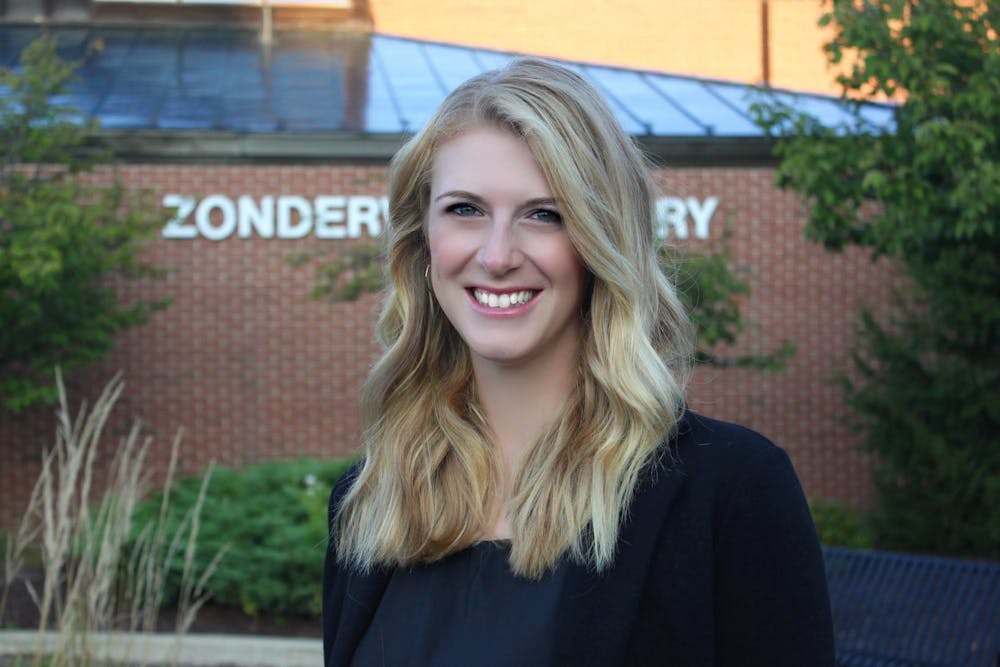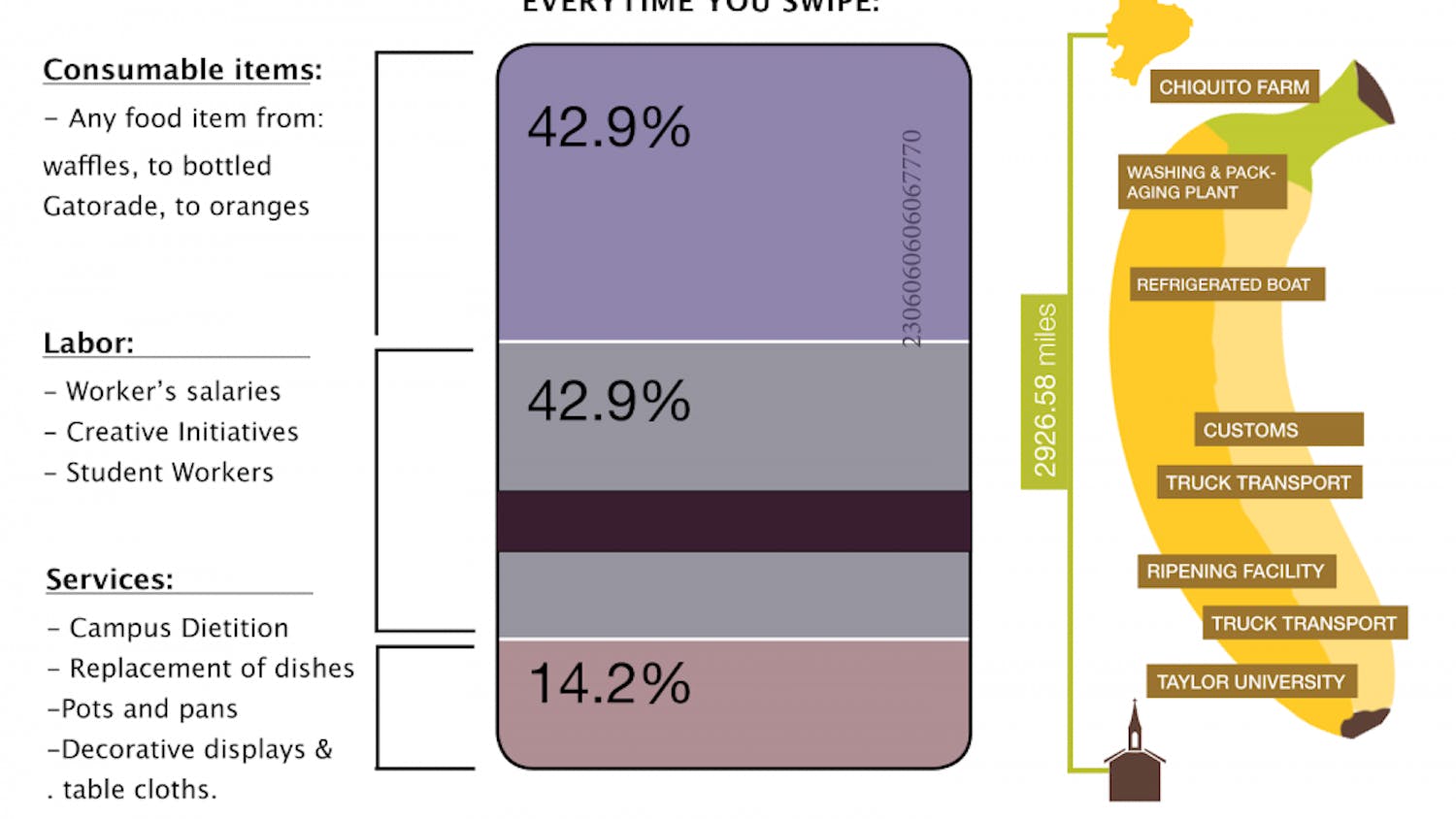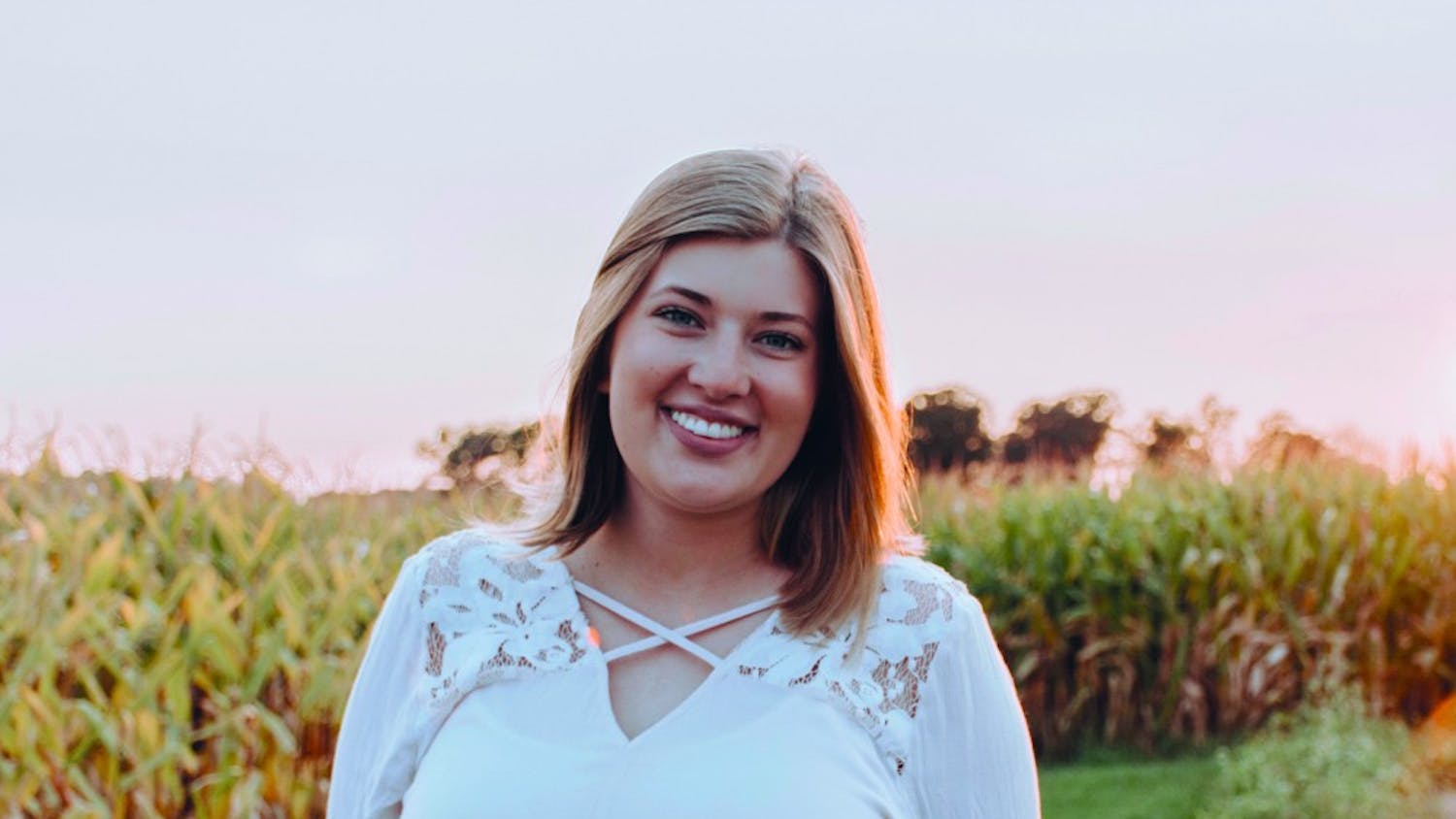Editor’s Note: The online version of this article was updated on Oct. 12, 2021 for clarification.
Taylor University has been around for 175 years, and when it was first established, no one knew what it could become.
The same went for University Archivist & Special Collections Librarian Ashley Chu. When someone asked her, “What do you want to be when you grow up?” librarian or archivist was never one of her answers. And yet, that’s exactly what you’ll find her doing, preserving Taylor’s history and making the past a relevant tool in the present.
16-year-old Chu didn’t know what was in store when she walked into the Zondervan Library looking to make some extra cash while she went through high school. It was at that moment her future career began.
Hired by the now-retired library director, Dan Bowell, and familiar with the school because of her grandma, aunt and mother who all worked as housekeepers on campus, Chu stuck around the library for five summers until she graduated from Taylor with a degree in marketing.
Bowell had seen the potential in Chu, and even attempted nudging her in the direction of library science, but Chu was set on her marketing aspirations.
“At the time, I was focused on a career in the business world, and thought a career in libraries sounded, well, kind of nerdy,” Chu said. “Fast forward 10 years later and I fell in love with possibly the nerdiest niche of library science — archives and special collections.”
After graduating, Chu married Nate Chu, who is the current director of intercultural student programs here at Taylor. They moved to Chicago, open to all the possibilities to come.
Temporarily, Chu worked at a national event marketing company in Schaumburg, Ill. but the future remained uncertain. The pair prayed about where God was leading them in the next chapter of their lives, and unexpectedly it was back at Taylor.
Along with these unexpected new beginnings, there was a strong sense in Chu that she was meant to pursue a career in a library, wherever that may be. She reached out to Bowell, her old boss, for a recommendation and applied to Indiana University to pursue a masters degree in Library Science.
“In a leap of faith, I actually made the decision to resign from my full-time position to pursue graduate study without knowing whether I had been accepted into IU’s program.” Chu said. “My acceptance letter came three days later, further emphasizing that God knows our path even when our next step is not yet illuminated to us.”
While in graduate school, a position opened at the Zondervan Library for a archives assistant. That feeling of having a future in a library, seemed to be closer than she had thought.
Chu got the job, and after completing her masters, she became a full-time archivist and librarian at the Zondervan Library.
“As an archivist, I direct the Ringenberg Archives & Special Collections, which has a mission to collect, preserve, make accessible and promote the history and heritage of Taylor University,” Chu said.
The library archives contain nearly 4,500 digital heritage items in the online institutional repository, Pillars, which is accessible through the Zondervan Library’s website, and yet this is only a small percentage of what the archives contains.
This selection consists of works from faculty, students and staff of Taylor University as well as works from collaborators all over the globe. There are no limits to what can be found in the archives.
A physical collection exists as well, and students can turn to either one of these avenues to find out more information on any minute detail of Taylor history they may be interested in. Whether that’s a wing tradition, a campus event or even an Echo article from 1913, this history is available across the globe.
“Part of my role is discerning what information that the university creates will be valuable for Taylor University to have access to in the future as well as what might be helpful for researchers within a variety of contexts,” Chu said.
While it might be hard to comprehend, daily life at a college in the 21st century will be history one day, and each paper or project assigned could be used as a primary source for scholars in the years to come.
Just like a national park, archives exist to protect and preserve a landscape. Students should take advantage of this and hike through these databases in order to remember and pass on.
“As we recognize and celebrate Taylor University’s 175-year legacy this year, our history is being emphasized and shared in new ways as we consider the experiences of those that have gone before us,” Chu said. “I encourage current Taylor students to be mindful of the fact that their stories and experiences, especially during the pandemic, will become an important thread in Taylor’s history.”





